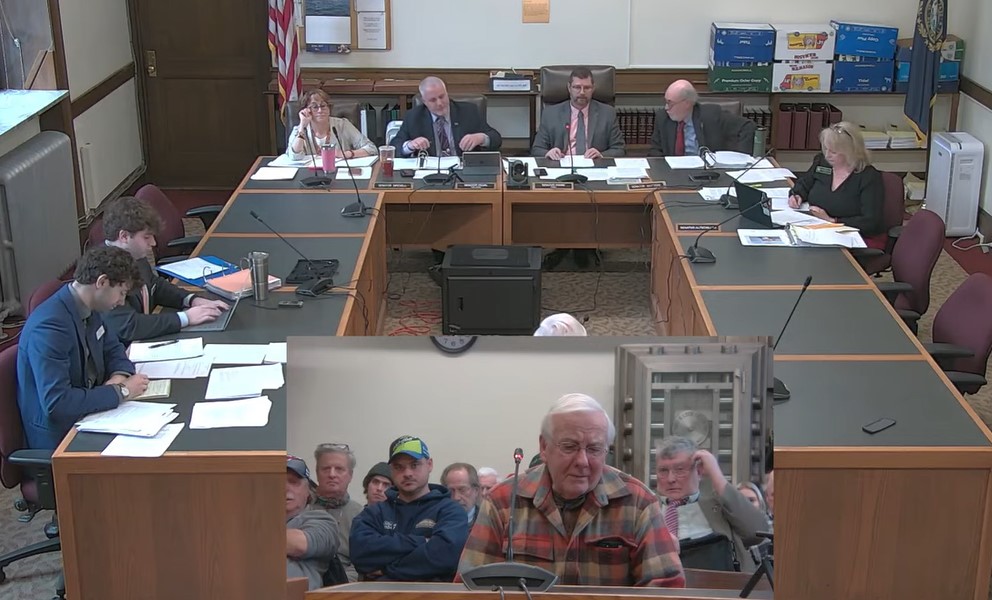By PAULA TRACY, InDepthNH.org
CONCORD – Lobstermen packed a hearing Tuesday overwhelmingly opposed to a bill that would establish a license to take lobsters by SCUBA in House Bill 442.
New Hampshire and Maine do not allow such a practice, but it is allowed in Massachusetts, Rhode Island, New York, and other states along the Eastern seaboard.
The Senate Energy and Natural Resources Committee scheduled the bill for 15 minutes of testimony but it went on for an hour and a half and heard from more than a dozen speakers, mostly in opposition.
The meeting had to be recessed until next Tuesday at 9 a.m. because there were so many more people to testify than time allowed.
There is no way to enforce the measure if made law, said Col. Kevin Jordan of New Hampshire Fish and Game Department.
“This thing is a mess,” he said of the bill, which was the worst proposal he has witnessed in 12 years coming to the State House on bills. He said it is poorly written.
Bill Marconi, a commercial lobsterman, said this would be a threat on top of many others to his way of life.
“If I don’t catch lobster, my family don’t eat,” he said. “This ain’t a recreational thing.”
But for Graham Birch of Hollis, a part-time SCUBA instructor, House Bill 442 is a reasonable proposal that respects the lobster industry and its resource.
Peter Whalen, a charter boat service operator who serves on various fisheries boards said right now the lobster industry is one of the few commercial industries left for fishing in New Hampshire and the bill is a detriment to that.
Others said that fishermen have to keep a distance of 500 feet from a diving flag and that would prohibit them from getting to their traps, and the timing is set to the tide.
The bill passed the House with an amendment by a vote of 276 to 100.
In addition to establishing a SCUBA lobster fishing license, the bill also requires persons lobstering with a commercial license to record the location of where a lobster trap is placed and make a good faith effort to retrieve such trap if it becomes detached from its buoy.
It reads, “A person who is a resident of this state and wishes to engage in scuba diving or freediving, also known as skin diving, as a recreational activity, and who is in compliance with RSA 270:31 through 270:32-a and has attained 18 years of age, shall be permitted to take lobsters under a scuba diver recreational lobster license issued by the executive director. The executive director shall limit the number of scuba diver recreational lobster licenses to 100 beginning with the calendar year this paragraph becomes effective. Licenses shall be issued on a first-come, first-served basis from the date the executive director establishes as the time when licenses can be issued,” it states.
The season would be from April 1 through September 15, and a scuba diver recreational lobster license shall be valid for not less than 4 weeks during such a season.
It states the executive director of Fish and Game “shall establish a limit on the number of lobsters taken per day by a scuba diver holding a license under this paragraph, provided such limit shall not be less than 3 lobsters per day per licensee unless a lower industry-wide limit is established. Lobsters shall be taken only for consumption by the licensee and the licensee’s family and guests.”
It noted that all lobsters taken shall be of legal size. It would require a report from Fish and Game every five years including the total number of lobsters reported taken by the year by non-commercial scuba diving license holders, the total number of non-commercial scuba diving lobster licenses issued, the number of violations issued, the number of investigations detailed by source, such as public complaint, commercial lobsterman complaint, diver complaint, conservation officer complaint.






